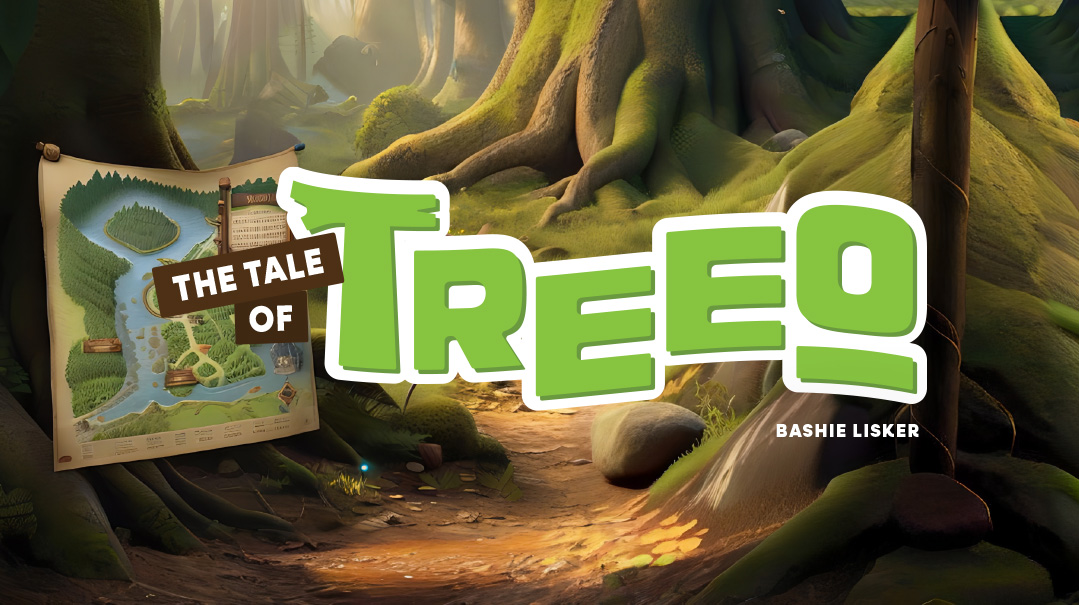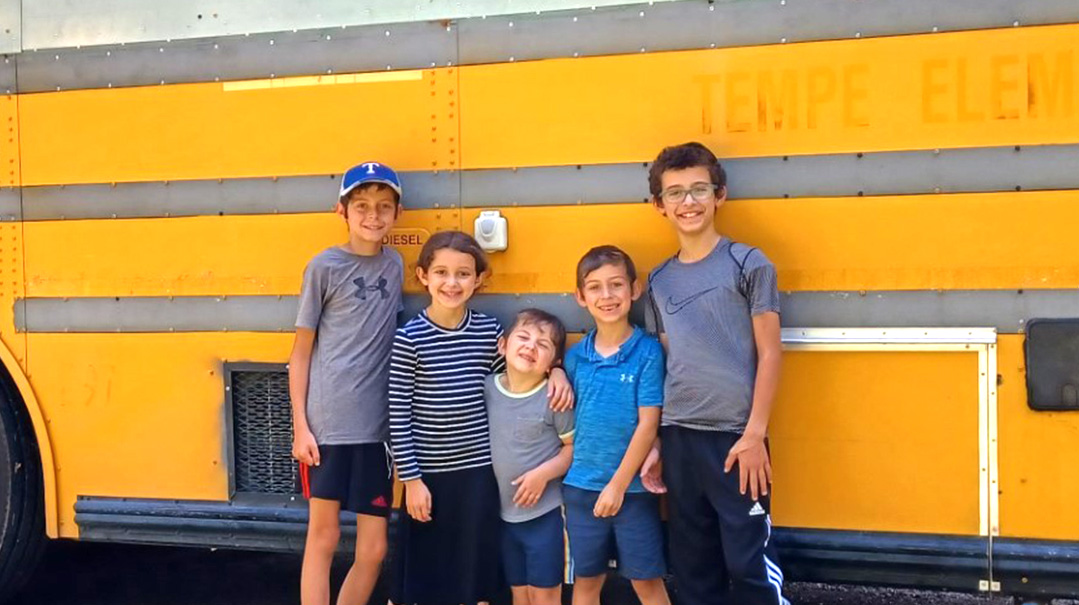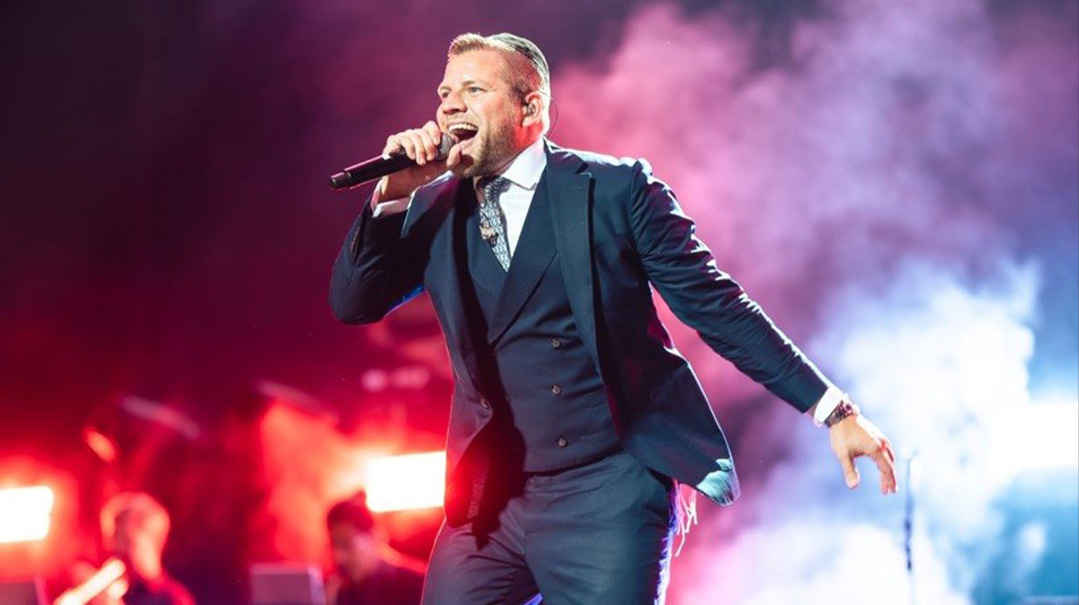Always On Call
| October 6, 2022Meet three very heroic people who choose to be there for us in our times of need
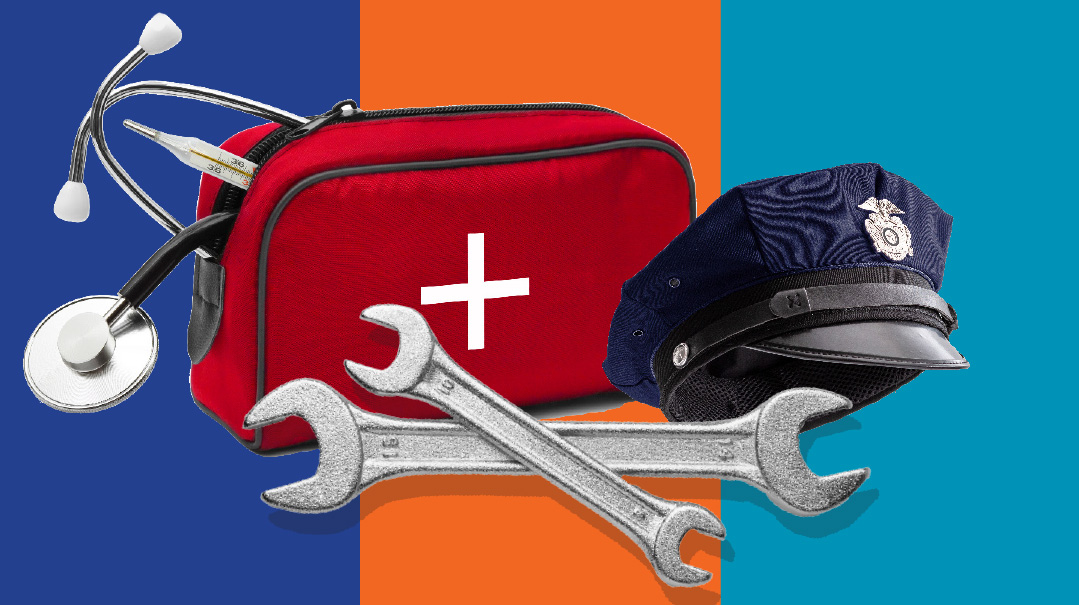
In our everyday lives, we usually coast through the day with only minor inconveniences interfering with our plans. And then there are the other kind of days: The days when something big goes wrong. It’s during those times that we rely on others who have the tools and the skills to get us through our crisis. But what’s it like on the other side? How does it feel to always be the one rushing to help another in need? What is it like to face crises day in and day out? And what makes someone want to be that person who is on call to help when there is a problem? Meet three very heroic people who choose to be there for us in our times of need.
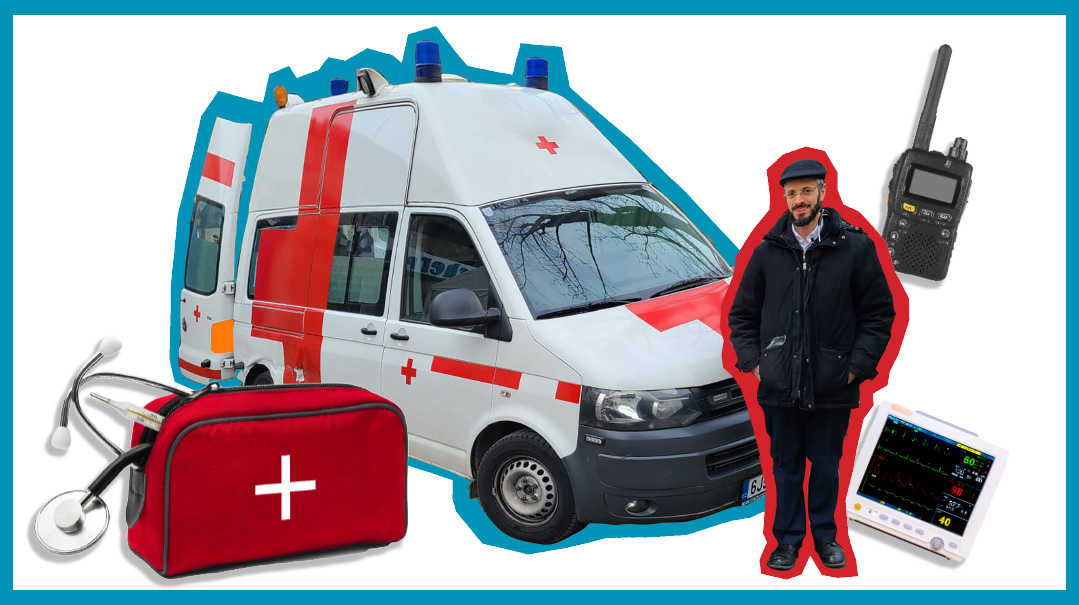
Hatzolah
We’ve all seen Hatzolah EMTs and ambulances, and there’s a good chance you may have even called Hatzolah once or twice in your life. Let’s see what it’s like to be the one who actually responds to those calls.
Dovid Josephovitz
Volunteers for: Hatzolah
Number of years: 23
I was interested in Hatzolah for a long time. My father gave classes to the first Hatzolah volunteers and that was probably what made me excited about all things medical. When I was in yeshivah, Hatzolah came around recruiting volunteers, so I asked my rosh yeshivah if I should join. He told me I should, but warned me that when it comes to Hatzolah, you volunteer once, and then you’re always on call. You’re obligated to answer a call whenever it comes in, during seder or if you are in the middle of something, you no longer have a choice. If you’re in, you’re in. I decided I wanted to be in.
The life of a Hatzolah volunteer:
Most Hatzolah members have a full life besides for Hatzolah. We work, we learn, we help our kids with homework. My day includes davening, working, learning, and helping my family. Somewhere in between, I volunteer for Hatzolah. Calls come in all the time, all day, every day. If I’m available and nearby, I respond to the call. But if I’m in the middle of something, I will only go if the person is someone I know. Other than that, I’ll let someone else take the call. On average, I respond to one call a day.
So you want to join Hatzolah?
There are two levels of volunteers: EMTs and paramedics. The first step is to become an EMT. That means you can provide emergency medical services. For most calls, an EMT is enough. To become an EMT, you need to take a course and pass a state test. After that, you get assigned to your first unit.
I think the best person to become a Hatzolah volunteer is someone who really cares. Caring is the most important thing.
Yes, it’s is a true story
There were two kids in my neighborhood who were sitting together on a very high swing. A neighbor passed by and said, “Boys, you should come down from there, it’s very dangerous. You could get hurt.” One of the boys responded, “Don’t worry, my father’s on Hatzolah.” The man said, “But you don’t understand. It’s really high. You could die.” So the second boy answered, “Don’t worry, my father’s on the chevra kaddisha.”
My favorite kind of call to get is… delivering a baby.
If I wasn’t involved with Hatzolah I would volunteer for… Tomchei Shabbos.
I’d never leave my house without… my radio.
My most important skill is… listening to patients.
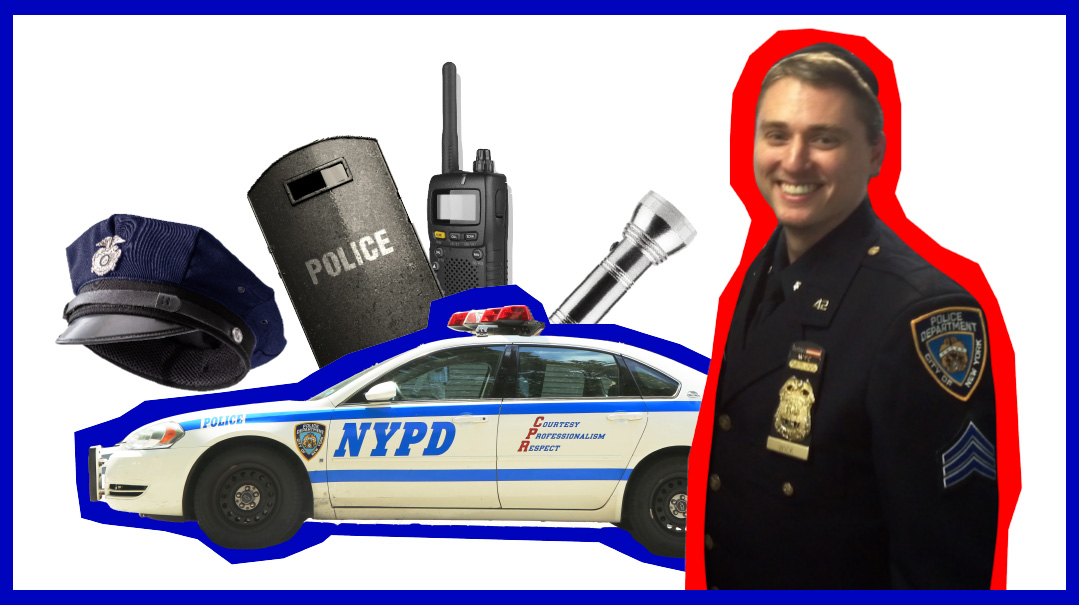
Policeman
People have different feelings toward policemen. Some people love them; some hate them, but the men in the blue uniform have an important job: keeping us all safe.
Shmuel Wick
Job description:
police officer
Number of years: 22
Originally, I went to Police Academy just to get college credits. After finishing, though, I wanted to give the job a try. Well… I tried it out and loved it so much that I stayed. Police work didn’t pay that well, but I loved working with people and didn’t want to stop.
The life of a police officer
There is no typical “day in the life” because it depends on what job you are assigned to. As an officer, I worked in Central Park, protecting the park and keeping it clear of homeless people. Then, when there were emergencies in the area, I would be called on to respond. For example, during 9/11 when the World Trade Center was hit, I cleared people off the street even before they realized there was an emergency. As a sergeant and lieutenant, I worked in some of the worst neighborhoods like the South Bronx and Brownsville. These places are really rough and crime ridden, and I would often be called to help people when a family member became violent. Being a policeman is a balancing act of connecting with the community and making sure they follow the rules.
Yes, it’s a true story
As a policeman in Central Park, there was one man I would meet every day. He was always drunk and I would get him to the hospital and help him. When he was a little more sober, I would talk to him and try to build a relationship with him. One day I found out that he actually had money that he could live off. After that, I would constantly tell him, “You have money. You are not stuck being a homeless person. Fix yourself up and you can have a great life.” One day he disappeared. This is often the case with homeless people, so I didn’t think anything about it. A while later, a man who was jogging in the park came up to me. He was neat and clean, his hair was cut, and he looked just about as average as any person could look. “Do you recognize me?” he asked. I didn’t. He said, “I’m that homeless guy you used to talk to all the time. You told me I could become something and I decided to try.”
It’s stories like these that make being a policeman worth it.
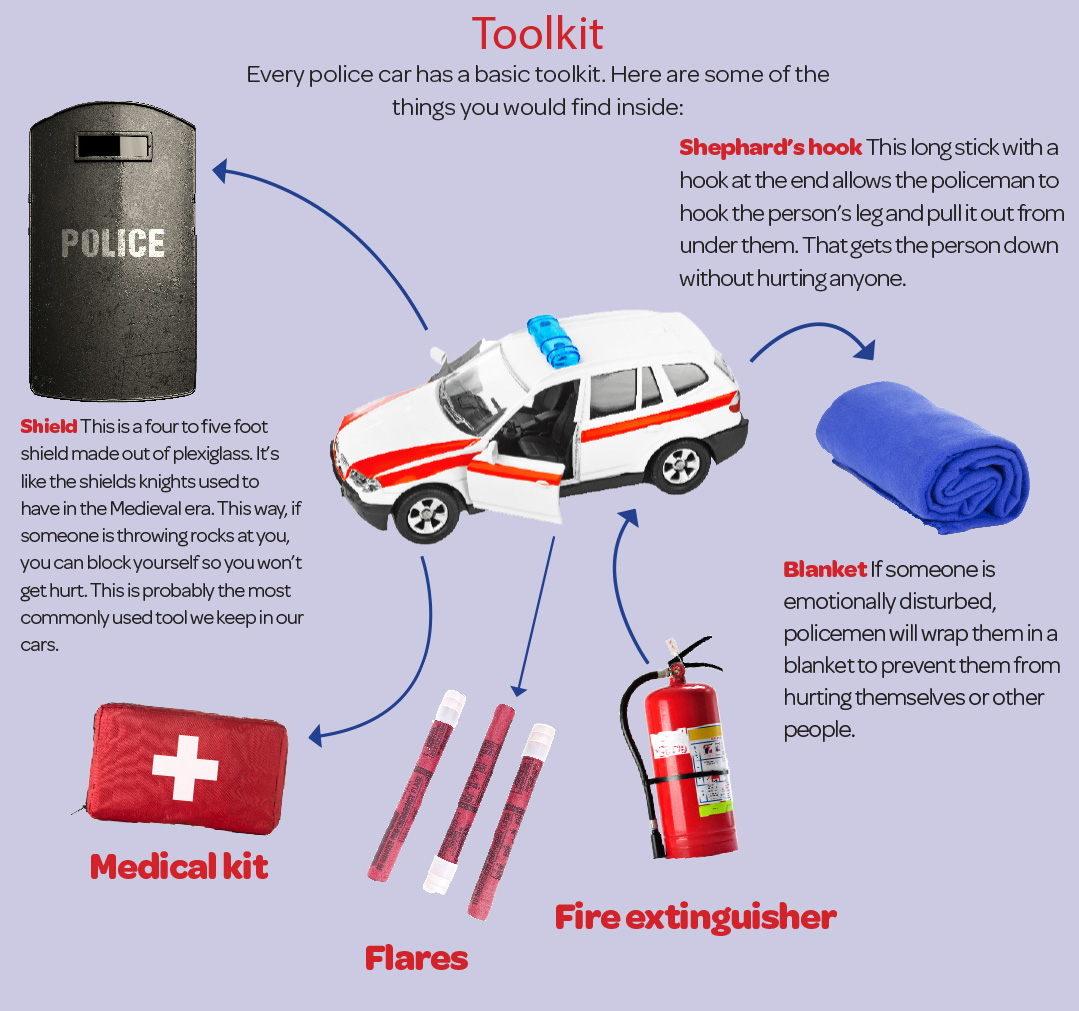
I think the coolest part about my job was… when I could help someone see the world in a whole different way and start to treat others better.
My favorite kind of call to get is… when a family needs help.
If I wasn’t a policeman I would be… a psychologist. It’s just another way of helping people.
My vehicle always has… many types of flashlights with backup batteries of different kinds.
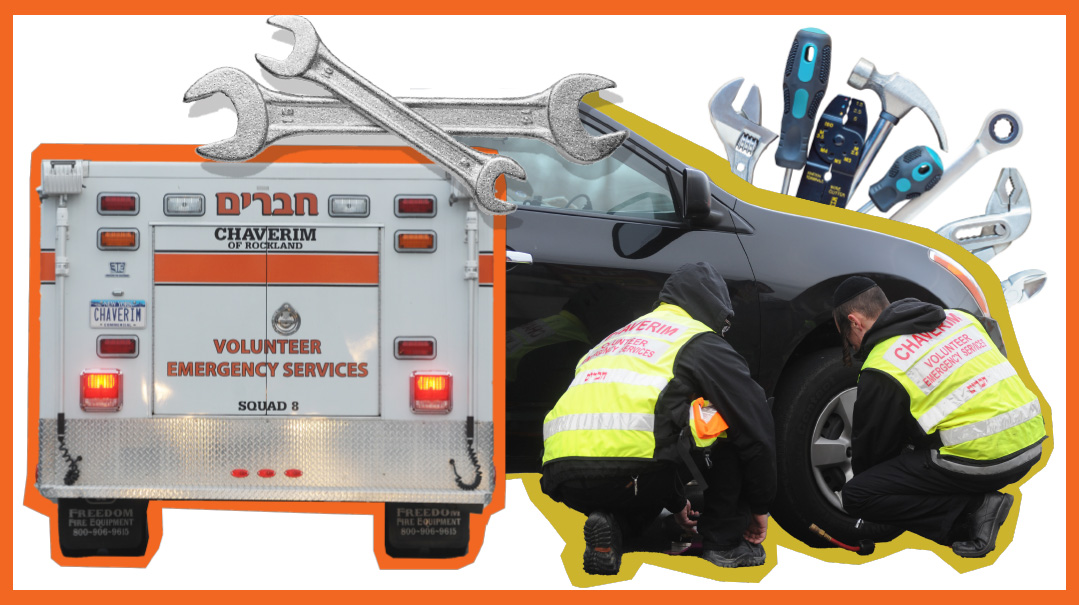
Chaveirim
Were you ever stranded on the side of the road because your car didn’t work? Forget about waiting an hour for AAA; when your car has a flat tire on the side of the road, or you lock the door and realize you left the keys inside, the first one to turn to is Chaveirim. They have the tools to help you out and the skills to do the job. Even though they’re not saving lives, they are helping all of us when we really need it.
Avigdor Cyperstein
Volunteers for: Chaveirim
Number of years: 14
For many years, there was no Chaveirim operation in Queens. People would call the Brooklyn Chaveirim, but there wasn’t always someone who could come to Queens to help them. One day my grandmother challenged me to open a branch of Chaveirim in Queens. I got a friend involved, spent four to five months researching methods and equipment, got a lot of help from the Brooklyn Chaveirim branch, found someone to sponsor the whole thing, and we were up and running!
The life of a Chaveirim volunteer
If you are a really active volunteer, you might be taking multiple calls a day. That would mean helping someone on the way to work, during your lunch break, on your way home and some time in between. The most common jobs are boosting a car when the battery dies and when someone gets locked out of a car. But Chaveirim takes all sorts of other calls, too. There are times when a child is locked in a car, times when we are called to get racoons out of people’s roofs, towing cars that get stuck in the snow, getting groceries for elderly people who can’t get out of the house, and even when someone needs a minyan in a cemetery!
So you want to volunteer for Chaveirim?
The best kind of volunteer for Chaveirim is someone who is very good with their hands. People who like cars, electronics, or mechanics are perfect. However, the most important thing is that you really care. Chaveirim is not something you will get awards for, but it is an opportunity to help someone. We even gave a car booster to a sixteen-year-old kid who lived near a busy street. He was able to walk over to take calls and give people with a dead car battery a boost. There were some kids in the neighborhood who wanted to get involved and asked us to help them start a Chaveirim for kids who could fix bikes. That didn’t work out, but your idea might! If you care, look for small ways to help others. Just like with Chaveirim, there may not be sirens and lights, but you really get to help someone.
Yes, it’s a true story
Once we got a call from a man. He was on his way to a job interview after years of being unemployed. The problem was that his car wouldn’t start. If he didn’t get to the interview on time, it would leave a bad impression and he wouldn’t get the job. We came, started the car, and helped him get that job he needed to turn his life around.
I think the coolest part about my job is… the big smile you get when you help someone get back on the road.
If I wasn’t doing Chaveirim I would volunteer for… Hatzolah — I already do!
My favorite kind of call to get is … a boost. It’s easy, quick and you get them on the road fast. Most guys would say lockouts because it’s fun to break into someone’s car without the key.
My vehicle always has… tools for a flat tire.
I’d never leave my house without… a booster pack.
(Originally featured in Mishpacha Jr., Issue 931)
Oops! We could not locate your form.


